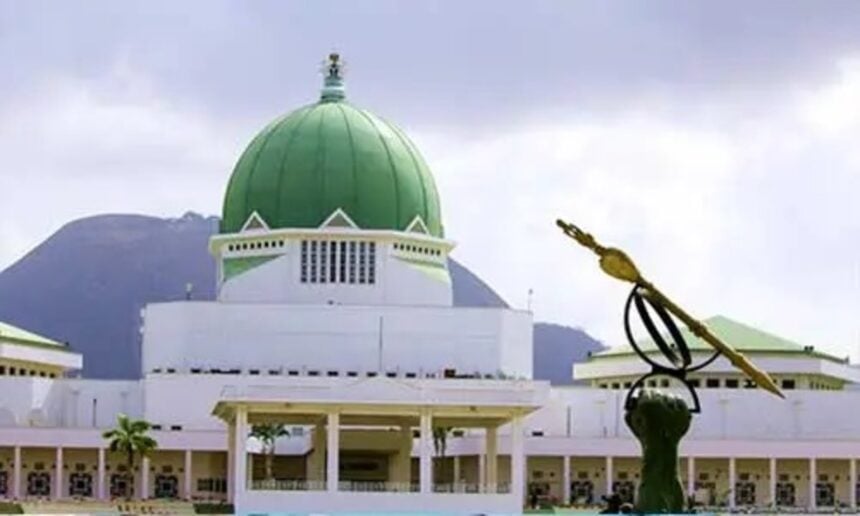Federal Government on Monday tasked National Assembly on the urgent need to accelerate the passage of key labour reform bills seeking to reposition Nigeria’s labour administration system.
The Minister who gave the charge in Abuja during the inaugural Policy Dialogue on the Legislative Agenda of the 10th House of Representatives, organized by Policy and Legal Advocacy Centre (PLAC), UK Aid and National Assembly Library Trust Fund (NALTF), expressed optimism that the proposed bills when passed into law will create an enabling environment for robust investments, enhanced productivity and attainment of social justice.
He said: “I make a passionate plea to the House of Representatives to facilitate the speedy passage of national labour laws. Listing among them are the Labour Standards Bill, Collective Labour Relations Bill, and the Occupational Safety and Health Bill.
“When enacted, these bills will not only reposition Nigeria’s labour administration system, but will create an enabling environment for robust investments, enhanced productivity and attainment of social justice,” he added.
In his remarks, Executive Director of Policy and Legal Advocacy Centre (PLAC), Barrister Clement Nwankwo, described the national dialogue as “a veritable platform for the robust articulation, analysis and appraisal of parliamentary activities towards a peaceful, prosperous, stable and sustainable nation.”
He maintained that the House’s eight-point Legislative Agenda remains a contract with the Nigerian people and a roadmap in complementing the efforts of the Executive in navigating the nation out of turbulent waters to the safe shores of national economic prosperity.
“The 10th House shone green flags as the beacon and the bastion of our democracy. It heralds a new era of purposeful alignment with global parliamentary best practices, benchmarked by the key indicators of strategic focus, measurable impact and parliamentary objectivity,” he stated.
In his address, Speaker Abbas Tajudeen, who scored the 10th Assembly high in the area of enactment of critical legislations since inauguration since June 2023 till date, reiterated the House’s commitment towards promotion of parliamentary accountability, transparency, and a truly citizen-driven legislature.
According to him, the 10th House was inaugurated in June 2023 when Nigeria was facing significant challenges, ranging from weak economy, pressing development and security crises, as well as frustrated populace who have lost hope in democracy’s ability to meet their aspirations.
He, however, noted that the 10th Assembly, “from the outset, we pledged to regularly engage with Nigerians, report on our performance, and adjust our course based on the people’s feedback. Today’s dialogue is part of that promise, serving as a precursor to the upcoming Open NASS Week, where we open our doors to scrutiny and present our midterm progress. The goal of this event is not only to celebrate our achievements but also to candidly examine areas for improvement in the spirit of openness and democratic inclusion.
“As the House prepares to mark the midpoint of its tenure, it is important to reflect on our journey so far. When the 10th House was inaugurated in June 2023, Nigeria faced significant challenges. The economy was weak, and there were pressing development and security crises. The populace was understandably frustrated and losing hope in democracy’s ability to meet their aspirations.
“This was followed by the shock of the removal of fuel subsidies, which exacerbated economic hardships and increased public anxiety. We recognised that extraordinary times required an extraordinary response from the legislature.
“Therefore, from the onset, the House dedicated itself to creating and implementing the most ambitious legislative agenda in our history. Designed to deliver good governance, this agenda aims to restore hope in democracy for our people. The Legislative Agenda was not crafted in isolation. Following extensive consultations with key stakeholders, including Ministries and Agencies, civil society, and development partners, we produced a comprehensive roadmap to guide our lawmaking, oversight, and representation from 2023 to 2027.
“We also took special care to align our priorities with the ‘Renewed Hope’ agenda of the President Tinubu-led administration, ensuring synergy between the legislative and executive arms of government. Thus, our agenda embodies collaborative governance by engaging in dialogue with the Executive. This approach allows us to fulfil our independent mandate while ensuring that our legislative actions support national objectives and address the pressing needs of our citizens.
“The agenda encompasses eight broad priority areas that address Nigeria’s diverse needs. These include strengthening good governance, enhancing national security, revitalising the economy, reforming our laws, and promoting social development. It also advocates for inclusion through an open Parliament, directs foreign policy in the national interest, and tackles climate and environmental sustainability.
“Never has a House of Representatives set such an expansive and forward-looking legislative blueprint. The impact the 10th House has made thus far is largely due to the deliberate, strategic, and focused execution of this agenda. We have remained focused and resilient in pursuing these goals, even when unforeseen issues arose.”
He argued that the House has “backed our plan with concrete implementation strategies. Each House Committee integrated the agenda into its work plans; we established clear milestones and key performance indicators to track progress, and we set up special committees to monitor and evaluate how well we are meeting our targets. We also insisted on better communication and regular reporting, which included requiring members to maintain functional constituency offices and report on their engagement with the public, ensuring accountability at every step.
“Crucially, our agenda was designed with the flexibility to respond to emerging crises. This means that even as new challenges have arisen, we have adapted swiftly without losing sight of our long-term goals. In short, we did not simply announce an ambitious agenda and hope for the best; we put in place the mechanisms and political will to implement it.
“Two years later, I am proud to report that these efforts have yielded results. In terms of legislative output, this House has been extraordinarily proactive and productive. We have introduced a record number of bills and a volume of legislative proposals that is unprecedented at this stage of any Assembly. More important than quantity, however, is the impact: these bills and motions are geared towards the critical reforms our country urgently needs. Already, many of significant bills that we passed have received presidential.”
Some of the achievements recorded by the 10th Assembly include: legislation to modernise and strengthen the power sector, establish a long-awaited federal audit framework for greater financial accountability in government, and create agencies critical to effective governance.
“We have also passed legislation to bolster security by improving the control of small arms and light weapons. Additionally, we have enacted laws to advance social welfare, including those promoting public health and addressing gender-based violence. Furthermore, we have enacted legislation establishing regional development commissions to further devolve more power to the geopolitical zones.
“Importantly, we did not shy away from tackling tough, long-standing issues. We reformed our economy, modernised our tax laws, recognised crypto assets, and broadened securities definitions. We have enacted critical legislation such as the Anti-Doping Law, the Student Loan Law, and the Data Protection Law to drive change, secure our communities, and protect the welfare of our people. We will continue to act with courage and determination.
“Beyond lawmaking, we have vigorously exercised our constitutional role to conduct oversight. We recognise that passing laws is not enough; we must also ensure they are implemented faithfully and that government actions are subject to scrutiny.
“In the past two years, the House has engaged in robust oversight of the Executive branch, holding ministries, departments, and agencies accountable to foster accountability and transparency in governance. Our committees have diligently investigated issues of public concern, from examining the management of economic reforms to assessing the state of national security efforts.
“On multiple occasions, the House has recovered billions of Naira for the government through the efforts of the Public Accounts Committee. We have summoned officials to explain the expenditure of public funds and the execution of policies, insisting that the dividends of democracy reach the citizens as intended.”
ALSO READ TOP STORIES FROM NIGERIAN TRIBUNE
WATCH TOP VIDEOS FROM NIGERIAN TRIBUNE TV
- Let’s Talk About SELF-AWARENESS
- Is Your Confidence Mistaken for Pride? Let’s talk about it
- Is Etiquette About Perfection…Or Just Not Being Rude?
- Top Psychologist Reveal 3 Signs You’re Struggling With Imposter Syndrome
- Do You Pick Up Work-Related Calls at Midnight or Never? Let’s Talk About Boundaries







